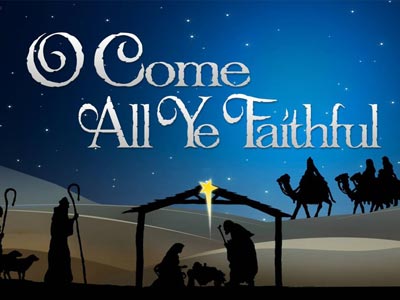-
Faithful In The Lord's Work
Contributed by Roger Hasselquist on Sep 12, 2023 (message contributor)
Summary: Tomorrow is Labor Day. The history of this day goes back to 1882, when a union leader named McGuire suggested a national holiday to honor the country’s working people. In September of that same year, workers staged the first Labor Day parade in New York City.
Alba 9-3-2023
FAITHFUL IN THE LORD'S WORK
Ephesians 6:21-22
Tomorrow is Labor Day. The history of this day goes back to 1882, when a union leader named McGuire suggested a national holiday to honor the country’s working people. In September of that same year, workers staged the first Labor Day parade in New York City.
Organized labor then campaigned to make the day a national holiday. President Grover Cleveland signed a bill making Labor Day a national holiday in the United States in 1894.
Ever since then we have set aside this weekend as a national tribute to the contributions that laborers have made to our country’s strength. There is also another day dedicated to workers called “Take our daughters and sons to work day.” Next year it will be on April 25th.
I read a story of a father who took his daughter to work one day. His daughter seemed excited to meet each co-worker. On the way home, however, she seemed sad. “Didn’t you have a nice time?” her dad asked. “Well, it was okay,” Amy responded. “But I thought it would be more like a circus.”
Her dad was confused and asked, “What do you mean?” She said, “Well, you said you work with a bunch of clowns, and I never got to see them!”
Work is an honorable endeavor. God is a worker. That’s how He first reveals Himself in Scripture. Genesis 1:1 states that God created the heavens and the earth. Genesis 2:2 calls this activity “work”: “And on the seventh day God finished his work that he had done, and he rested on the seventh day from all his work that he had done.”
And God didn’t stop working after creation. In John 5:17, Jesus declared, “My father is working until now, and I am working.” Jesus kept working until on the cross He was able to say, “It is finished.” He completed the work of salvation so that our sins could be forgiven by His sacrifice.
And then, before ascending up to heaven, He gave us the command in Mark 16:15-16, “Go into all the world and preach the gospel to every creature. He who believes and is baptized will be saved; but he who does not believe will be condemned.”
So, while the work of bringing salvation to the world was completed in Jesus by His death, burial and resurrection, there is a work that continues to this day. In Ephesians 6:20 the apostle Paul calls himself an ambassador of the Lord to make known the gospel.
And in 1 Corinthians 3:9 he says, “For we are God’s fellow workers.” The continuing work that God has given to His people is to make known that only in Jesus do, “we have redemption through His blood, the forgiveness of sins, according to the riches of His grace.” (Ephesians 1:7)
And also that God is, “not willing that any should perish but that all should come to repentance. (II Peter 3:9) This is the work that the Lord has given to the church. The job is ours. The apostle Peter tells us in I Peter 2:9 that we, “are a chosen generation, a royal priesthood, a holy nation, His own special people, that (we) may proclaim the praises of Him who called (us) out of darkness into His marvelous light.”
In Ephesians 6:21-22 we are introduced to a man who was that kind of worker for the Lord. His name is Tychicus. The apostle Paul wrote; “But that you also may know my affairs and how I am doing, Tychicus, a beloved brother and faithful minister in the Lord, will make all things known to you; whom I have sent to you for this very purpose, that you may know our affairs, and that he may comfort your hearts.”
Notice, Tychicus is called a “faithful minister” in the Lord. The New Century Version of the Bible says he is, “a faithful servant of the Lord’s work.” The New Life Version calls him “a faithful preacher.” And the New Living Translation says he is, “a beloved brother and faithful helper in the Lord’s work.”
While Tychicus does not share the familiarity of name such as Timothy or Titus, Tychicus has been mentioned five times in scripture. Each time it refers in some way to the work he is doing for the Lord.
In the case of this letter to the Ephesian church, it is obvious that he delivered the letter himself. There was no postal service in those days. Letters were carried by trusted people from the writer to the intended receiver. In fact, Tychicus not only delivered this letter, but also at least two others.
One was to the church in Colossae. And the other was to a man in that church whose name was Philemon. We have both of those letters as well as this one to the Ephesians.

 Sermon Central
Sermon Central



